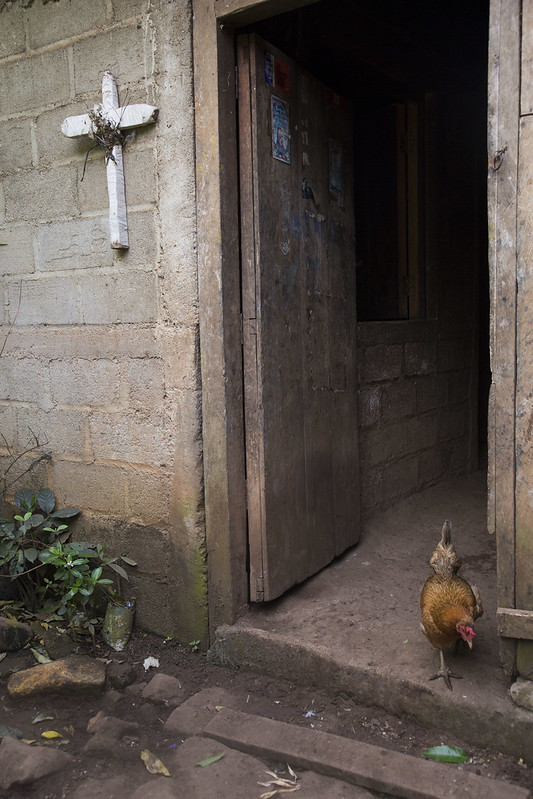We Feed the World explored the extraordinary stories of 50 communities around the world, featuring small-scale farmers and fishers from across the globe who are using regenerative techniques to nurture biocultural diversity. Launched in 2018, We Feed the World brought the efforts of these individuals and communities to light in the context of current challenges – from land-grabbing to deforestation – calling for global support of small-scale, agroecological farming. We are often told by corporations, governments and the media that without a high-tech, chemically intensive industrial food system, we would soon starve. We Feed The World cut through this misinformation to creatively tell the stories of the farmers and fishers who really feed the world.
Recognising that this is an ongoing journey, and with the imminent launch of We Feed The UK, we recently revisited some of the individuals and communities featured in the original campaign to find out where they are now, and bring you updates on their stories…
HOW IT STARTED:
In Northern Nicaragua in the areas surrounding Estelí, the campesina (peasant) women of Fundación Entre Mujeres’ (FEM – Foundation Between Women) have been organising and constructing their own liberation for many decades now. Also called ‘Las Diosas’ (The Goddesses), the organisation of 1500 members encompasses seven cooperatives, which produce coffee, hibiscus, honey and wine, as well as maintaining community ‘seed reservoirs’ (seed banks). In each community, the FEM provide women’s self-defence groups and community centres/shelters where medical services and education are provided.
- Photographs by Susan Meiselas
In their own words… “For 28 years, rural women organized in the FEM have been developing actions to confront the difficult situation in which we live, starting by becoming literate and reaching higher levels of education and aiming to improve our quality of life with our own means. These efforts have required an integral vision of women’s lives, which implies the management and control of economic resources, natural resources, especially land and the production of healthy and sufficient food, also raising our level of peasant class consciousness and the rights we have as women, starting with the right to recover our bodies, our reproduction, our sexuality and the fight against violence. In recent years, we have delved into peasant feminism, decolonial feminism, patriarchy, capitalism, micromachismos and expressions of violence we experience every day. These reflections have led us to deepen the strategies of defence, protection and conservation of existing livelihoods, as a form of resistance, in order to continue to inhabit our territories and communities, thus strengthening the feminist vision, the awareness of the body and the territory, as well as the development of strategies to strengthen our livelihoods with class and rights awareness.”
HOW IT’S GOING:
Since we last met with The Goddesses, FEM have been in the throes of planning three new projects and seeking financial support to see them through to fruition.
Biointensive Farms
Continuing their established methods of supporting women in their communities through providing economic independence and strengthening food sovereignty, the FEM is planning to support six women to set up small bio-intensive farms in the villages of El Rosario, Los Llanos, Horno, Guasuyuca, Carao and El Colorado in the municipality of Pueblo Nuevo. They are currently seeking funding to provide seeds, tools, fruit trees, netting and irrigation to enable the women to provide food for themselves and their community.
“It hasn’t been about money but more about values, the wealth of knowledge that can be learnt, about perspective, ideology. It has taught me to realise what I have, rather than what I haven’t. We have also learnt to value ourselves.” Reyna Merlo, FEM member
Basic Grains
In 2022, Hurricane Julia devastated many staple crops of maize and the three sisters (maize, beans and squash) in Estelí. This was an extremely challenging time for many of the FEM members, and also meant that many seed reserves were used up in order to ensure a harvest. There is now a severe lack of native seed in the local seed reservoirs. Usually, women take seed from the seed reservoir and return 50% of their crop to maintain the stock. The FEM is hoping to work with 9 of the seed reservoirs, to provide each with 200kg of native maize seed and 200kg of native bean seed. This seed will provide enough for 16 women from each community to plant roughly an acre of maize, and for 4 women from each community to plant an acre of beans. FEM are seeking startup costs to pay for the seed, which will in turn restore the precious seed stocks to more sustainable levels.
- Photographs by Susan Meiselas
Training Workshops
Men currently have majority access to agricultural and technical education in Nicaragua , so as a result the FEM create their own educational programmes, focusing on topics that directly affect women, and that are largely untouched by official curriculums. The FEM are working with the Madre Tierra Ecotechnology School to fund a series of 20 workshops for 20 different communities about agroecology, feminism and adaptation to climate change. They are funding for the design, salary, and transportation costs to get participants to the school.
“Farming is important work, working with the cycles/seasons. It feels like we are protecting the earth and nature by farming in this way. I also learned to love myself, and we fight for the defence of our rights – such as access to land, the right to live without violence, the right to health and education.” Isabel, FEM member



